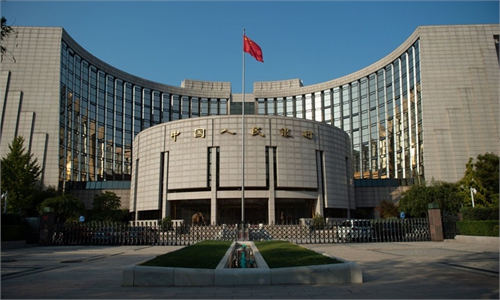Public budget expenditures rise 5.4% in 2023
Proactive fiscal policy expected to further boost domestic demand

Customers purchase flowers at a market in Jinhua, East China's Zhejiang Province on January 18, 2024. The peak shopping season for flowers has commenced ahead of the Chinese New Year holidays in February. Local and regional flower orders are on the rise, contributing to a notable increase in business for the city's flower industry. Photo: VCG
China's fiscal expenditures in 2023 hit a record of 27.46 trillion yuan ($3.82 trillion), an increase of 5.4 percent year-on-year, providing strong support for the economic recovery, the Ministry of Finance said on Thursday.
From January to May, general public budget expenditures reached to 10.48 trillion yuan, up 5.8 percent year-on-year, showing strong and fast-paced growth, the ministry said.
The small decline in fiscal expenditures in June and July last year was mainly due to the existence of large expenditures in the same period of 2022, which was within expectations, and there was no contraction of fiscal expenditure, the ministry noted.
Vice Minister of Finance Wang Dongwei said that fiscal expenditures strongly supported key areas including social security and employment, education and technology. He also noted the issuance of 1 trillion yuan in additional government bonds last year.
Tian Yun, a veteran economist based in Beijing, told the Global Times on Thursday that the additional bond issue was very timely and became an efficient push for economic growth in the fourth quarter of 2023.
Fiscal revenue recovered in 2023, thanks to economic improvement and the low base effect due to massive tax and fee cuts in 2022, Wang said.
Last year, the country's general public budget revenue increased 6.4 percent year-on-year to exceed 21 trillion yuan, Wang said, noting that all 31 provinces achieved growth in their fiscal revenue.
"Revenue growth across the country's 31 provincial economies in 2023 was undoubtedly a strong testament to China's solid economic recovery," Wang Peng, an associate researcher at the Beijing Academy of Social Sciences, told the Global Times on Thursday.
Wang Peng noted that the data indicated that the financial situation of local governments had improved, and the growth in fiscal revenues provided local governments with funds to repay their debts and reduce their debt risks.
In terms of local government debt, Wang Dongwei said that the ministry has formulated policies to address the risk of hidden debt of local governments, while providing more transfer payments to local authorities.
Cao Heping, an economist at Peking University, told the Global Times on Thursday that the faster growth of fiscal revenue compared with GDP showed the structural optimization of China's economy, while claims that government debt problems will drag down the economy have proven to be unfounded.
The trend of China's economic recovery and long-term improvement has not changed, and fiscal revenue will continue to grow, Wang Dongwei said.
"This year, the government will maintain a certain intensity in fiscal spending," he noted, adding that fiscal policies will focus on seven areas including accelerating the construction of a modernized industrial system, expanding domestic demand, increasing investment in education and supporting employment.
With regard to the treasury debt, the ministry will arrange for the issuance of the debt ahead of time within the limit of the balance of the national debt, as reviewed and approved by the National People's Congress, to support necessary expenditures.
In December 2023, after fulfilling approval procedures in accordance with the law, the Ministry of Finance issued part of the new local government debt allocation for 2024 to various regions in advance, to support the construction of major projects and give full play to the role of local government bonds as a stimulus to the economy.
The expansion of fiscal spending by the central government is expected to continue in 2024, Cao noted.
Tian agreed, noting that there is large scope for more government bonds to be issued, and fiscal policy should be brought forward to the first half of the year.
"At a time when localities are facing structural adjustments, the expansion of central finance and increased transfer payments are very important, as China is relying on domestic demand to boost economic growth," Tian noted.


